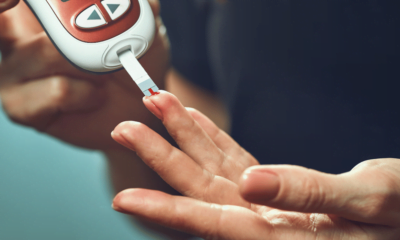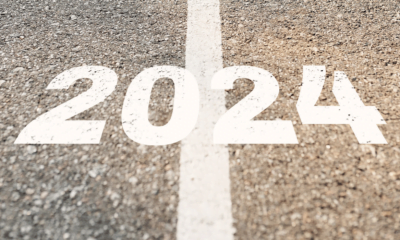Despite a lack of regulation, and the fact that we know little about its effects, products containing the semi-synthetic cannabinoid, HHC, are cropping up across the continent. Here’s what you need to know.
The ‘legal high’ Hexahydrocannabinol, better known as HHC, is on the rise across Europe.
According to a report from the European Monitoring Centre for Drugs and Addiction (EMCDDA) earlier this year, HHC has now been identified in over 20 European countries, with online searches for stores selling these products also increasing rapidly.
This, coupled with the fact that we know very little about its potential effects or risks, means more and more countries are making moves to crack down on the substance.
So, what do you need to know about HHC?
What is HHC?
Hexahydrocannabinol is one of a group of substances known as intoxicating hemp-derived cannabinoids (IHDCs), alongwith the better-known Delta-8 THC. IHDCs are psychoactive compounds derived from the cannabis sativa plant that occur naturally, but can also be synthesised, with many being converted from CBD.
HHC is synthesised from CBD extracted from hemp plants, containing low levels of THC.
It was first thought to have been sold in the US in September 2021 and was first identified in Europe in May 2022.
The EMCDDA has been tracking the substance via the EU Early Warning System (EWS) since October 2022 and by December it had been identified in 70% of EU member states.
According to the EMCDDA, it is the first semi-synthetic cannabinoid (SSC) to be reported in the EU, with HHC acetate (HHC-O) and hexahydrocannabiphorol (HHC-P) also having been identified since.
It is often sold and marketed as an alternative to cannabis and THC products, being sold off in a variety of forms including flowers and resin with low-THC content, which have been treated with, or combined with HHC. Vape pens, e-liquids, edibles and oils have also been found on the market.
What do we know about its effects?
So far we know very little about HHC and its potential effects and/or risks.
A limited number of laboratory studies suggest that it shares many similarities with THC. However, there is a lack of research on its pharmacological and behavioural effects in humans.
Some consumers have reported that HHC produces similar effects to cannabis, which may appeal to those looking for a ‘legal high’ which is more easily accessible than illicit cannabis.
This lack of research and safety data has led to a number of European countries bringing in tighter controls around the substance.
What is the legal status of HHC?
The short answer; it’s a grey area.
HHC sits in something of a legal loophole, as it is derived from hemp plants containing low levels of THC which can legally be grown.
In the US more than 20 states have banned (or are looking to) ban the sale of IHDCs.
Since first being flagged as a New Psychoactive Substance (NPS) by the EMCDDA, it reports that around 50 seizures of the substance across the EU have been reported by police and customs agencies, amounting to around 70 kg and almost 100 litres worth of product.
The EMCDDA held a ‘technical expert meeting’ in December 2022 and since then a number of European countries have taken steps to control the sale of HHC.
Where has HHC been banned so far?
Iceland
In January 2023, Iceland implemented emergency rules to immediately remove HHC and THCO from the market. Officials notified the EU Commission of their intention to add the cannabinoids to the controlled substances list, becoming the first country in Europe to attempt incorporating HHC into their narcotics regime.
Estonia
Estonia became the first EU country to follow Iceland’s lead, introducing a bill to include HHC in its list of psychotropic drugs.
Austria
In March, media reports confirmed the inclusion of HHC on the list of prohibited substances, resulting in the immediate prohibition of its sale, including remaining stock.
Switzerland
The Swiss Federal Department of Home Affairs also announced an amendment to its narcotics and psychotropics legislation, banning HHC and 10 other substances.
Poland
Poland has informed the European Commission of its intention to include HHC-O, an acetate version of HHC, in its narcotics list, and has stated that HHC is already classified as a narcotic.
Sweden
Earlier this year, Sweden’s Public Health agency added H4-CBD to the list of substances under investigation and confirmed the addition of HHC in October 2022.
Bulgaria
In April, Bulgaria’s National Drugs Council announced its plan to draft a bill banning the production, trade, possession, and use of HHC, classifying it as a Schedule 1 substance alongside THC.
Denmark
The Danish Health Minister has hinted at plans to ban HHC in the media, although no concrete proposals have been presented to parliament.
France
Following a parliamentary question regarding HHC, the country’s health minister, François Braun, told media he expected it would soon be banned and regulation from the National Agency for the Safety of Medicines and Health Products (ANSM) is expected shortly.
Czech Republic
The National Anti-Drug Headquarters and the Ministry of Defense, supported by the Ministry of Health has proposed including HHC in the list of addictive substances from July 2023.
Officials have submitted draft regulations to the European Commission, proposing the addition of HHC and tetrahydrocannabiforol (THCP) to the controlled substances list, while excluding industrial hemp and hemp extract.
Hungary
At the beginning of June, the government notified the EU TRIS (Technical Regulations Information System) of a bill to include HHC, HHC-O and HHC-P on its narcotics list.
The information in this article was correct, to the best of our knowledge, at the time of publication.

 Science5 months ago
Science5 months ago
 Industry6 months ago
Industry6 months ago
 News5 months ago
News5 months ago
 News6 months ago
News6 months ago
 Health5 months ago
Health5 months ago
 Health3 months ago
Health3 months ago
 Science5 months ago
Science5 months ago
 Cannabis explained5 months ago
Cannabis explained5 months ago












